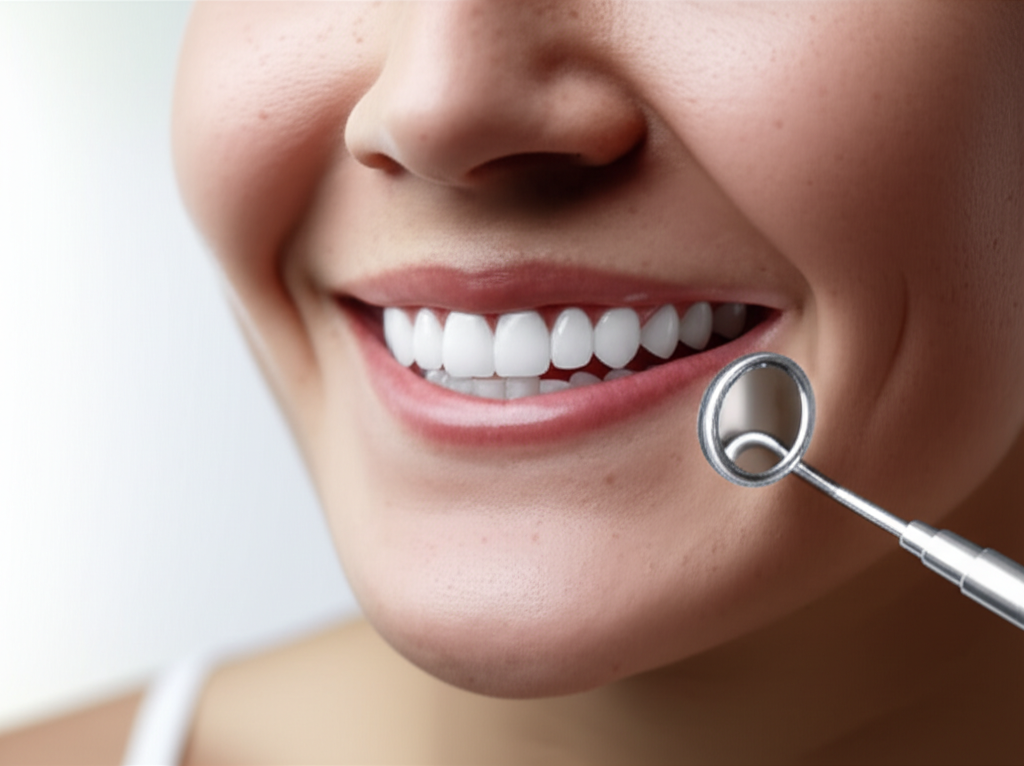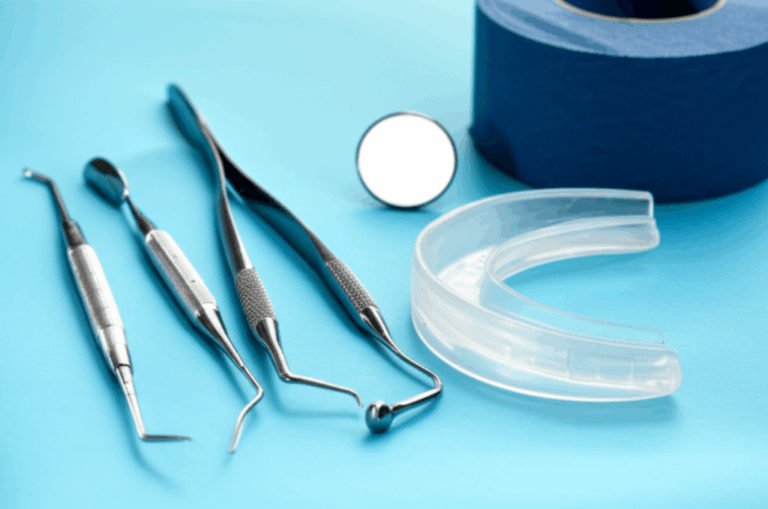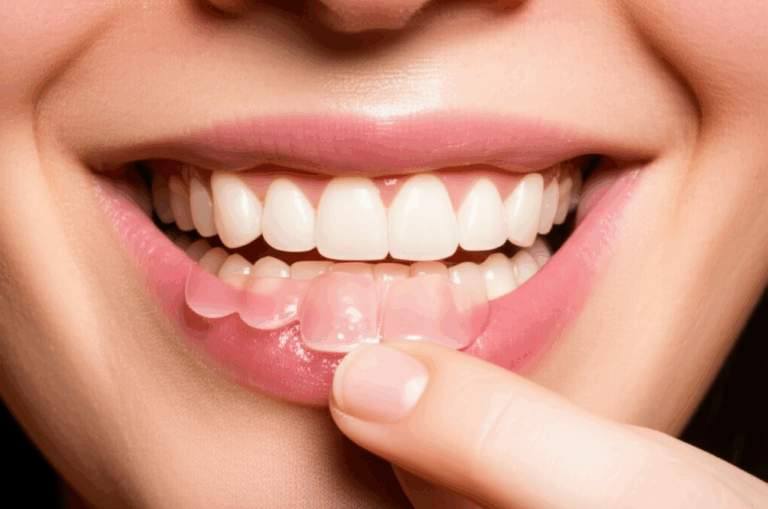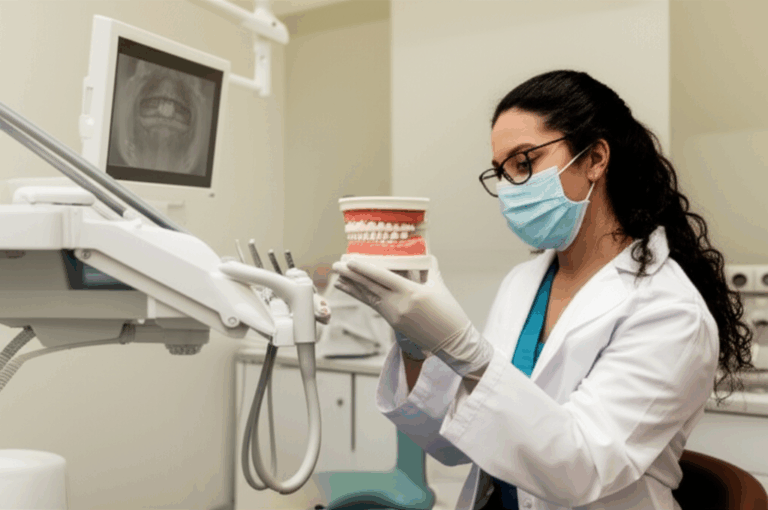
How Long to Take Ibuprofen After Dental Implant Surgery? My Real-World Advice for a Smooth Recovery
Table of Contents
- Introduction: My First Dental Implant and Ibuprofen Experience
- Understanding Post-Operative Pain After a Dental Implant
- General Guidelines for Ibuprofen Use Post-Implant
- Typical Duration: When to Expect to Stop Taking Ibuprofen
- Recommended Dosage and Frequency for Effective Relief
- Combining Ibuprofen with Other Pain Relievers
- Factors That Influence Your Specific Ibuprofen Needs
- When to Stop Taking Ibuprofen—And What to Do If Pain Persists
- Important Considerations and Warnings About Ibuprofen Use
- Beyond Medication: Holistic Recovery Tips for Dental Implants
- Conclusion: Your Recovery, Your Needs—But Never Go It Alone
Introduction: My First Dental Implant and Ibuprofen Experience
I’ll never forget the day I sat in my dentist’s chair, holding onto the armrests, getting ready for my first dental implant. I had so many questions in my head. One that really got me was, “How long do I need to take ibuprofen after this?” If you’re here reading, you probably wonder the same thing. Maybe you’re already a day or two into healing, not sure if you’re doing it right, and wondering about every pain and every pill.
Through the years—yep, this wasn’t my only time with implants—I learned a lot about handling pain, what to expect, what’s normal, and when to worry. Let me guide you through what I wish I knew before my implant in simple language, so your recovery feels less scary.
Understanding Post-Operative Pain After a Dental Implant
Dental implants are amazing, but in the end, surgery is always surgery, and any work done on your jaw and gums can leave you hurting for a bit. When they put my implant in, I felt a deep sore pain that made me wonder if things would ever feel normal again.
Here’s what is really going on: During the procedure, your dentist or surgeon makes space in your jawbone for the titanium implant. This bothers your nerves, bone, and gum tissue. Right after, your body tries to fix things, sending blood and special cells to the spot. This causes swelling—which is what brings most of the pain and puffiness right after.
Usually, the worst pain and swelling come in the first 24 to 48 hours. By Day 3, things often start to calm down. That “What have I done?” feeling slowly fades as you heal. But everyone’s pain level and healing time are different. The pain can also be worse if you had extra work done (like a bone graft or sinus lift).
Here’s what I learned: Mild to middle-level pain after an implant is normal. But if pain gets worse, spreads, or is with a fever, pus, or problems opening your mouth—it’s time to call your dentist. Don’t try to tough it out!
General Guidelines for Ibuprofen Use Post-Implant
After my surgery, I left with a packet of instructions that, to be honest, didn’t make much sense in my woozy state. The pharmacist told me how to take ibuprofen, but dealing with it myself taught me more. Here’s the simple version:
Typical Duration: When to Expect to Stop Taking Ibuprofen
For most easy, one-implant surgeries, using ibuprofen for about 2 to 5 days was enough for me. The first 24 hours were the worst. At night and when I woke up, I took ibuprofen to stay ahead of the pain. By the third day, the pain was so much better that I started skipping doses and soon felt okay without it.
If your surgery was bigger—like getting more than one implant, having extra bone work, or a sinus lift—you might need ibuprofen for up to 7 days or so. But most dentists, like mine, want you to stop as soon as you can. The less pain medicine you need, the better.
Recommended Dosage and Frequency for Effective Relief
This is when you need to read the bottle. Regular over-the-counter ibuprofen (like Advil or Motrin) is usually 200mg each. My dentist said to take 400-600mg (2-3 tablets) every 4-6 hours. Never go over 3200mg in a day unless a doctor says it’s okay. Sometimes, after a tougher surgery, I got a prescription for 600mg or even 800mg tablets, and would take those less often (every 6–8 hours).
Rule to remember: Only take what you need, and always follow your dentist or surgeon’s advice. If normal ibuprofen isn’t working, or you need it all day for many days, ask for help.
Combining Ibuprofen with Other Pain Relievers
After my first implant, I learned a helpful trick: taking ibuprofen and acetaminophen (Tylenol) at different times can keep pain away better. For example, take 600mg of ibuprofen, then three hours later take 1000mg acetaminophen, and repeat. This way, you don’t go over the limit for either medicine and avoid the need for strong prescription pain drugs. But always check you aren’t taking too much of either one.
Don’t take two similar medicines at the same time (like ibuprofen and naproxen). Don’t drink alcohol or mix ibuprofen with blood thinners unless your doctor says it’s safe.
Factors That Influence Your Specific Ibuprofen Needs
If I learned anything, it’s that there’s no “one-size-fits-all” for pain medicine after implants. What you need could be very different from what I needed. Here are some things that matter:
- How much surgery you had: More implants or extra work (like bone repair) usually means you’ll need pain meds longer. I saw this when I had a bone graft the second time.
- Your own pain level and healing: Some people don’t feel much after surgery. Others, like me, feel everything. Pay attention to your own body.
- Problems after surgery: If you get an infection, dry socket, or nerve pain, you may be on pain meds longer—but this means you should see your dentist.
- Your health and other medicine: If you have kidney trouble, stomach problems, bleeding issues, or take blood thinners, ibuprofen may not be safe, or you might need to be careful.
Always tell your dentist about all your health and medicines. I found out the hard way that ibuprofen didn’t work well with certain allergy medicine I was taking.
When to Stop Taking Ibuprofen—And What to Do If Pain Persists
So when can you put down the pill bottle?
For me, once the pain dropped to just a little ache or went away for a few hours, I started using ibuprofen less often. By day four, I didn’t need anything but maybe some acetaminophen before bed. Taking less slowly, instead of just stopping, helped me notice if my pain was really gone.
But if your pain comes back hard, or if the first pain hasn’t gotten better after five days, don’t just keep taking more—call your dentist. Bad, hard, or longer pain can be a sign of infection, dry socket, or another problem medicine alone won’t fix.
Call your dentist fast if you have:
- Pain that’s the same or worse for more than seven days
- Big swelling that goes down your chin, up your face, or into your neck
- Fever, chills, or pus near the spot
- Trouble swallowing, talking, or opening your mouth
- Numbness or tingling that doesn’t leave
A little soreness is normal. If you see any of these signs, don’t wait.
Want to learn about what can affect your dental implant cost or get other tips? Check out this dental implant guide for simple advice, or find out more about implant cost before your appointment.
Important Considerations and Warnings About Ibuprofen Use
Ibuprofen isn’t candy—even though it can feel great when your pain goes away.
Possible Side Effects: If you take it for a few days, watch out for tummy issues like nausea or heartburn. Ibuprofen can hurt your stomach, especially if you’ve had ulcers or stomach problems before. It also makes bleeding easier (especially right after surgery) and can be tough on your kidneys if used too much.
Don’t Use If: You’re allergic to NSAIDs, or your doctor has told you not to use them because of kidney issues, blood thinners, or stomach ulcers.
One time I made the mistake of drinking wine while taking pain pills—it left me with a bad headache and an upset stomach. Not worth it. Skip alcohol when using ibuprofen, and always ask your doctor if you’re unsure.
Daily Limit: Stay under 3200mg a day (unless your doctor says otherwise) and split it up throughout the day. If you miss a dose, just take the next one—don’t double up.
Mixing With Other Medicines: If you take other pills—especially for blood pressure, blood thinners, or other pain meds—get your dentist or doctor to check for any problems.
Beyond Medication: Holistic Recovery Tips for Dental Implants
Pain medicine is only one part of good healing. In my experience, a few simple things made healing quicker, safer, and sometimes helped me stop pain pills faster:
- Cold Packs: Use a bag of frozen peas or a cold pack (with a towel) on your cheek for the first 48 hours. It really helps with swelling and pain.
- Soft Foods: Eat things like yogurt, soup, smoothies, and mashed potatoes—at least for a few days. Chew on the other side to leave your implant alone and lower pain.
- Oral Care: Brush gently, avoid the surgery spot at first, and rinse with warm salty water (skip mouthwash for now). It helps stop infection and keeps things from hurting.
- Rest Up: Don’t try to do too much after your implant. Rest for a few days. No heavy lifting or tough workouts—you’ll heal better.
- No Smoking or Drinking: Both slow healing. I’m not a smoker, but friends who are said it took them longer.
- Drink Water: Stay hydrated (no straws) to help healing and keep your mouth clean.
- Follow Dentist Instructions: Every surgery is a bit different. Stick to what your dentist or surgeon says.
Want to see how new technology can help your dental work? Learn more about digital dental labs and how labs can change your dental experience.
Conclusion: Your Recovery, Your Needs—But Never Go It Alone
If you remember one thing from my story, let it be this: Getting over a dental implant is a personal thing, but you never have to go through it alone. Ibuprofen is really helpful for easing those first sore days, but it’s not for long-term pain. Most people (like me) can stop using it after 3–5 days, maybe up to 7 if the surgery was bigger—unless your dentist says something else.
Listen to your body, do what your dentist says, and watch for danger signs. If something feels wrong, don’t be afraid to ask for help. With the right info and a bit of patience, you’ll be back to normal soon.
If you have questions about implant parts, how long results last, or lab work, you can always check with a trusted implant dental laboratory.
Take care, and here’s to a happy, pain-free smile—made better when you know what to expect!








